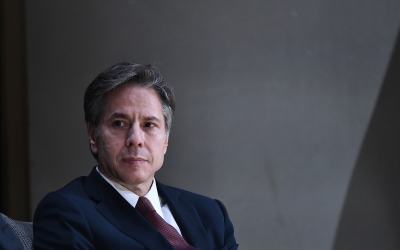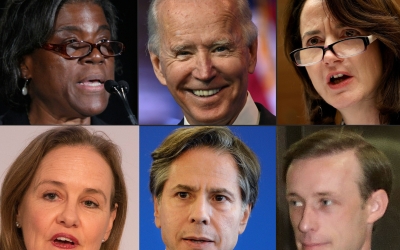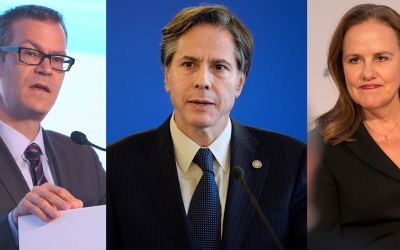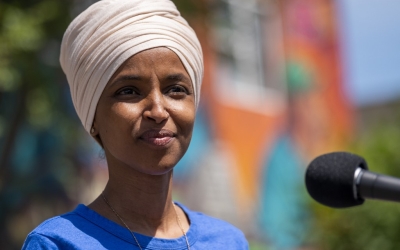'Business as usual': Biden's cabinet picks signal return to Obama-era foreign policy
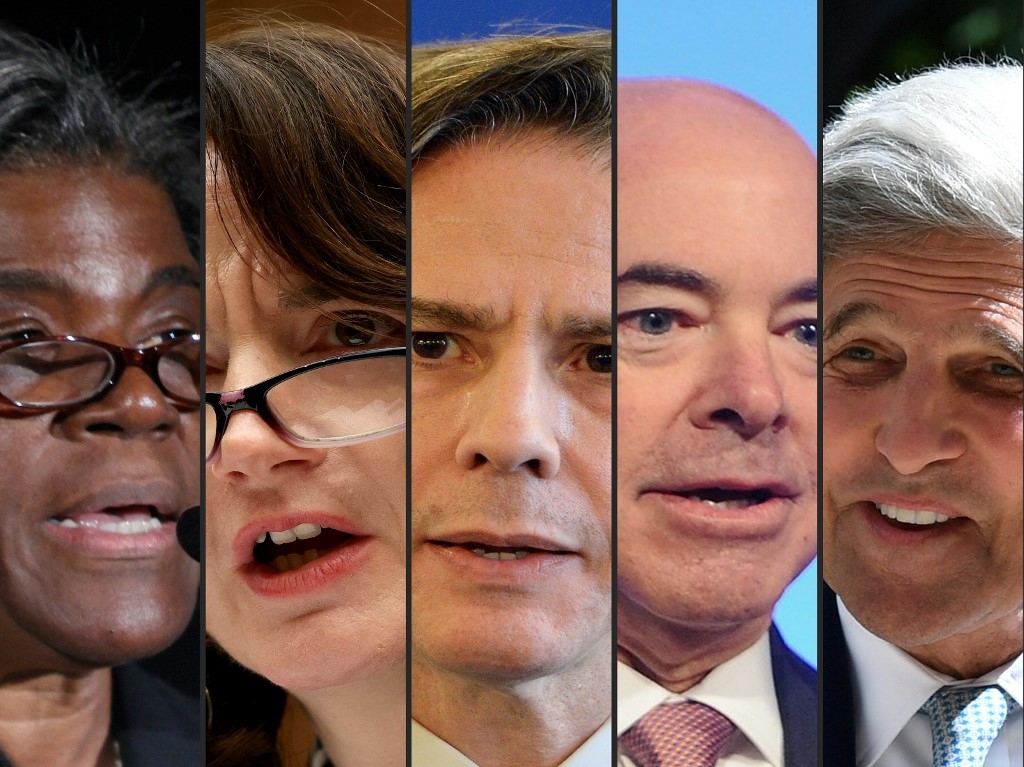
President-elect Joe Biden's latest picks for upcoming national security and foreign policy posts have received mixed reviews from progressives, as leaders and activists express concern, as well as hesitant approval, over the administration's exclusively Obama-era transition team.
Biden and Vice President-elect Kamala Harris on Monday announced their nominations for some top policy posts, including secretary of state; secretary of homeland security; director of national intelligence; national security advisor; and US ambassador to the United Nations, among others.
While progressive congressional leaders have largely stayed away from harsh criticisms, progressives activists, who last week largely condemned Biden's choice of Pentagon advisers, are accusing the incoming president of going with nominations that will extend US interventionist policies.
The left has taken a particular objection to Biden's secretary of state pick, Tony Blinken, a longtime Biden adviser who is considered a veteran of the national security and foreign policy establishment and a staunch supporter of Israel.
Medea Benjamin, co-founder of anti-war group CodePink, told Middle East Eye that Biden's choice of Blinken as the State Department head signalled to her that the administration was not looking to enter a new era of US foreign policy, but rather trying to step back into the pre-Trump world.
"We have a guy who will be president who was in favor and helped get congressional support for the Iraq war, and now we have a secretary of state who was with Biden during that time, encouraging that," she said in a phone interview on Monday.
"That war is pretty much universally recognised as the worst foreign policy blunder in our history, and people get rewarded for it," she said.
"This all tells me there's not a heck of a lot of visionary thinking coming out of this administration, it's retreads from the Clinton and Obama years," Benjamin said.
'Shameful and concerning'
Others seemed accepting of Biden's decision to step back into Obama-era leaders, given the whirlwind of status-quo-breaking measures installed by US President Donald Trump's four-year term.
Palestinian-American Congresswoman Rashida Tlaib, seen as one of the House's leading progressives, expressed concern over Blinken's nomination but seemed to withhold judgement.
"So long as he doesn't suppress my First Amendment right to speak out against Netanyahu's racist and inhumane policies," Tlaib said on Twitter, referring to the Trump administration's move last week to categorise the Palestinian-led Boycott, Divestment and Sanctions (BDS) movement as antisemitic.
"Sec. Pompeo has moved to suppress BDS, a peaceful protest movement protected by the 1st Amendment. I hope that Mr. Blinken and President-Elect Biden's Administration will change course from Trump's State Department & not target or suppress support of Palestinian human rights," she continued on Monday.
Congresswoman Ilhan Omar, another House progressive leader, also seemed okay with Biden's picks, saying that Monday's announcement showcased "a capable team that has a one-in-a-generation opportunity to reorient our foreign policy toward justice".
However New York Representative Alexandria Ocasio-Cortez (AOC) continued her criticism of Biden's consideration of Rahm Emanuel, a former Chicago mayor and White House chief of staff under Obama, for a high-ranking federal government position.
Biden had originally considered Emanuel as a possible secretary of the Department of Transportation, but backtracked after three Democrats blasted Rahm for the role he played in the police cover-up of the shooting of 17-year-old Black teen Laquan McDonald in 2014 when he was Chicago's mayor.
"Rahm Emanuel helped cover up the murder of Laquan McDonald. Covering up a murder is disqualifying for public leadership. This is not about the 'visibility' of a post. It is shameful and concerning that he is even being considered," she tweeted.
'Biden taught me what it takes'
Jake Sullivan, Biden's appointee for national security adviser, succeeded Blinken as security adviser to Biden during his second term as vice president and helped establish back-channel talks with Iran that led to the Iran nuclear deal.
He also served as the head of policy planning at the State Department under Hillary Clinton and he became her closest strategic adviser.
The 43-year-old has been an advocate for returning to the nuclear accord and is expected to lead the US in rejoining scores of international treaties and organisations withdrawn by the Trump administration.
"All of that is important. But other than that, it is going to be pretty much business as usual, meaning huge defense spending, a heavy US footprint in the world, and this outdated notion that the US should be at the head of the table, providing global leadership," Benjamin said.
During the Trump presidency, Sullivan co-founded National Security Action, a policy advocacy group mostly comprised of ex-Obama administration staffers.
He also joined the London and New York–based Macro Advisory Partners, a secretive "strategic advisory and macro analytics firm" run by former British spy chiefs. Earlier this year, he spent several months representing Uber against labour unions.
"President-elect Biden taught me what it takes to safeguard our national security at the highest levels of our government," Sullivan wrote on Twitter following Monday's announcement. "Now, he has asked me to serve as his National Security Advisor. In service, I will do everything in my power to keep our country safe."
His position is appointed by the president and does not require Senate confirmation.
Crafting contentious drone policy
Meanwhile, Avril Haines, Biden's pick for director of national intelligence, also succeeded Blinken in one of his past administration posts, taking over as Obama's deputy national security adviser and serving in several other positions under the administration.
Her position will be subject to confirmation by the Senate, which may be under Republican control after the inauguration on 20 January, depending on the outcome of two contests in Georgia.
Between 2007 and 2008, Haines was deputy chief counsel to the Senate Foreign Relations Committee, during which time Biden was chairman.
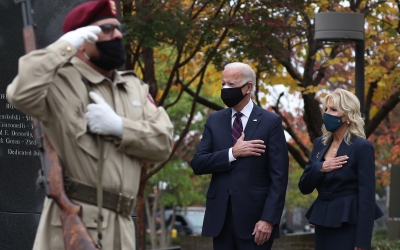
One of the more controversial Biden picks, she has taken heat due to her work creating the legal justification for Obama's drone wars and for her vocal support for Gina Haspel, an architect of President George W Bush's torture programme, as Trump's CIA director.
"Gina Haspel is intelligent, compassionate, and fair. Moreover, Gina has an unparalleled understanding of the institution, the agency’s work, and she will support the workforce - all attributes the agency needs from its director," Haines said of Haspel's nomination in March 2018.
At the time, leading human rights groups spoke out fervently against Haspel's nomination.
She has also been criticised for her work on the redactions within the Senate torture report, which helped to ensure that the CIA personnel who spied on the Senate faced no accountability.
Haines is also a member of the Center for a New American Security (CNAS), a think tank that has received millions of dollars in funding from weapons contractors, according to the Center for International Policy, and was a consultant for the controversial data-mining firm Palantir.
If appointed, she will be the highest-ranking woman to ever serve in the intelligence community.
'Progressive views need to be expressed'
While progressives offer criticism, establishment Democrats have generally expressed enthusiastic approval for Blinken, Sullivan and Haines, touting the picks as fairly conventional appointments with decades of relevant experience.
"Such an amazing group of national security picks. They are all individually brilliant and - just as importantly - will make a great team!," tweeted Colin Kahl, who was formerly deputy assistant to President Obama and national security adviser to Biden during his vice presidency.
"The world will sleep easier tonight. @ABlinken and Jake Sullivan are not just experienced, brilliant and strategic, they are wholly honorable. It’s a new day, folks. Thank you @JoeBiden," former Michigan governor Jennifer Granholm, a Democrat, tweeted.
Still, Vermont Senator Bernie Sanders has reiterated his desire to serve as Biden's labor secretary and has warned the president-elect not to freeze out progressives as he shapes his government.
"It seems to me pretty clear that progressive views need to be expressed within a Biden administration," Sanders said last week.
"It would be, for example, enormously insulting if Biden put together a 'team of rivals' - and there's some discussion that that's what he intends to do - which might include Republicans and conservative Democrats - but which ignored the progressive community. I think that would be very, very unfortunate."
DACA champion and UN envoy reap approval
Alejandro Mayorkas, Biden's pick to head the Department of Homeland Security (DHS), seems to be less controversial.
Mayorkas served as director of Citizenship and Immigration Services (USCIS) and deputy secretary of DHS under the Obama administration.
'As an immigrant and a creator of the DACA program, he's well suited to undo Trump's damage and build a more compassionate and common sense immigration agenda'
- Julian Castro, former HUD secretary
Known for creating DACA, an Obama-era programme granting young undocumented immigrants legal status in the US, as a Cuban American Mayorkas would be the first Latino and immigrant to serve in the DHS position.
Julian Castro, a progressive-leaning politician who served as secretary of housing and urban development under Obama and ran in the 2020 presidential primaries, applauded Mayorkas' nomination.
"Alejandro Mayorkas is a historic and experienced choice to lead an agency in desperate need of reform," Castro said.
"As an immigrant and a creator of the DACA program, he’s well suited to undo Trump’s damage and build a more compassionate and common-sense immigration agenda," he continued.
Mayorkas's nomination was also supported by UnidosUS, self-described as the US's largest Latino nonprofit advocacy organisation.
As US ambassador to the United Nations, Biden has chosen Linda Thomas-Greenfield, who served in the US foreign service for 35 years before recently retiring.
A longtime diplomat, she served as the assistant secretary for the Bureau of African Affairs between 2013 to 2017, as well as in several other state department positions under the Obama administration.
She was also US ambassador to Liberia and held diplomatic postings in Switzerland, Pakistan, Kenya, Gambia, Nigeria and Jamaica.
"I’ve had the privilege to build relationships with leaders around the world for the past thirty-five years. As US Ambassador to the United Nations, I’ll work to restore America’s standing in the world and renew relationships with our allies. Blessed for this opportunity," Thomas-Greenfield said after Monday's announcement.
"Greenfield is an excellent choice who will have the major task of restoring our reputation at the UN after anti-human rights villain @NikkiHaley destroyed it," tweeted Democratic political strategist Kaivan Shroff.
Obama's former secretary of state, John Kerry, has also been offered a position as special presidential envoy for climate.
Middle East Eye delivers independent and unrivalled coverage and analysis of the Middle East, North Africa and beyond. To learn more about republishing this content and the associated fees, please fill out this form. More about MEE can be found here.


